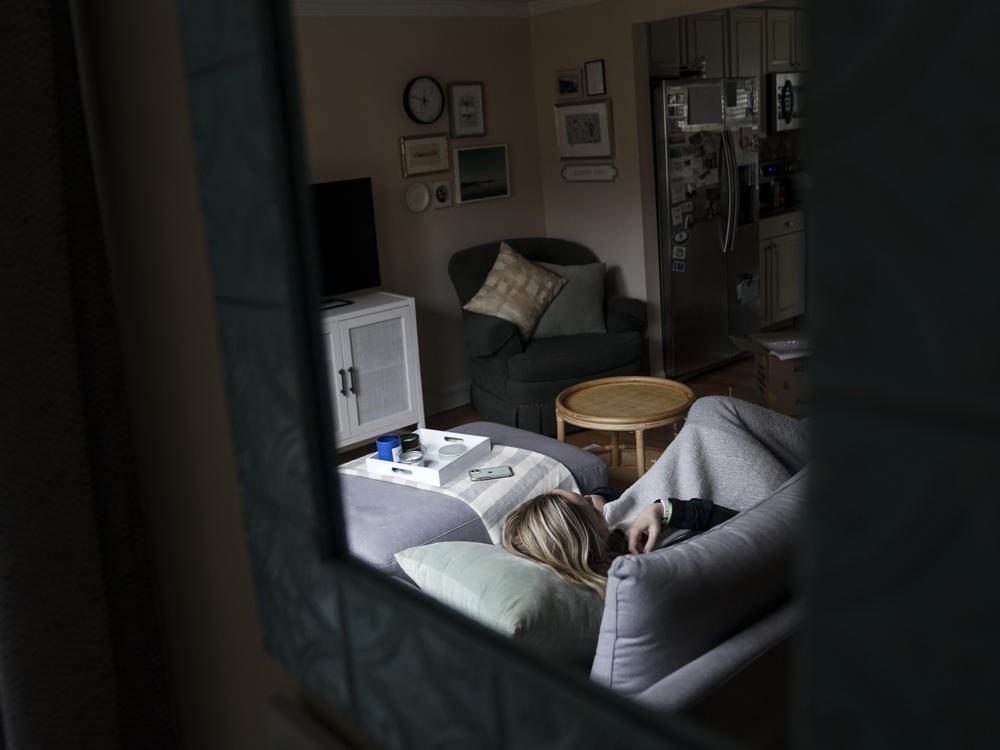Section Branding
Header Content
What we know about long COVID — from brain fog to physical fatigue
Primary Content
At a recent Senate hearing on long COVID, Rachel Beale took to the stage and shared her experience managing her symptoms for the past three years. "Long COVID has affected every part of my life," said the Virginia resident. "I wake up every day feeling tired, nauseous and dizzy. I immediately start planning when I can lay down again."
Beale is far from alone.
Many of her experiences have been echoed by others dealing with long COVID. It's a constellation of debilitating symptoms that range from brain fog and intense physical fatigue to depression and anxiety. Many people have lost months or years to this illness and describe extreme frustration at the lack of answers.
Doctors, too, feel unmoored by the lack of answers. "You do sort of feel like you're out in the wilderness," says Rasika Karnik, the medical director of UChicago Medicine's post-COVID. "It's hard to look a patient in the eyes and say 'we're not quite sure yet' and to keep repeating that."
There are currently no validated treatments for long COVID. There is not a widely established biomarker that can be used to diagnose it. Care clinics are hard to get into — and even if you do get in, most scientists believe this isn't just one illness in the first place.
But there's new, promising research that sheds light onto some long COVID symptoms. In one study on physical fatigue, researchers at Vrije University in Amsterdam compared muscle biopsies of patients with and without long COVID and found that the problem lies not with lung or heart functioning, but with the muscles' abilities to take up oxygen in the blood.
And another team of researchers at the University of Pennsylvania were able to pinpoint one possible cause of brain fog: a drop in serotonin levels. They were also able to reverse brain fog symptoms in mice.
There is a growing network of scientists who are pushing research forward — many with private funding from philanthropists. Congress has allocated more than a billion dollars for long COVID research, and there's been some new funding announced by the NIH recently. But patient advocates say that solving a problem of this scale will take continued attention and even more funding.
Have more COVID questions you want us to cover? Email us at shortwave@npr.org — we'd love to hear from you.
Listen to Short Wave on Spotify, Apple Podcasts and Google Podcasts.
Listen to every episode of Short Wave sponsor-free and support our work at NPR by signing up for Short Wave+ at plus.npr.org/shortwave.
This episode was produced by Margaret Cirino. It was edited by Brit Hanson and Rebecca Ramirez. David Greenburg was the audio engineer.

